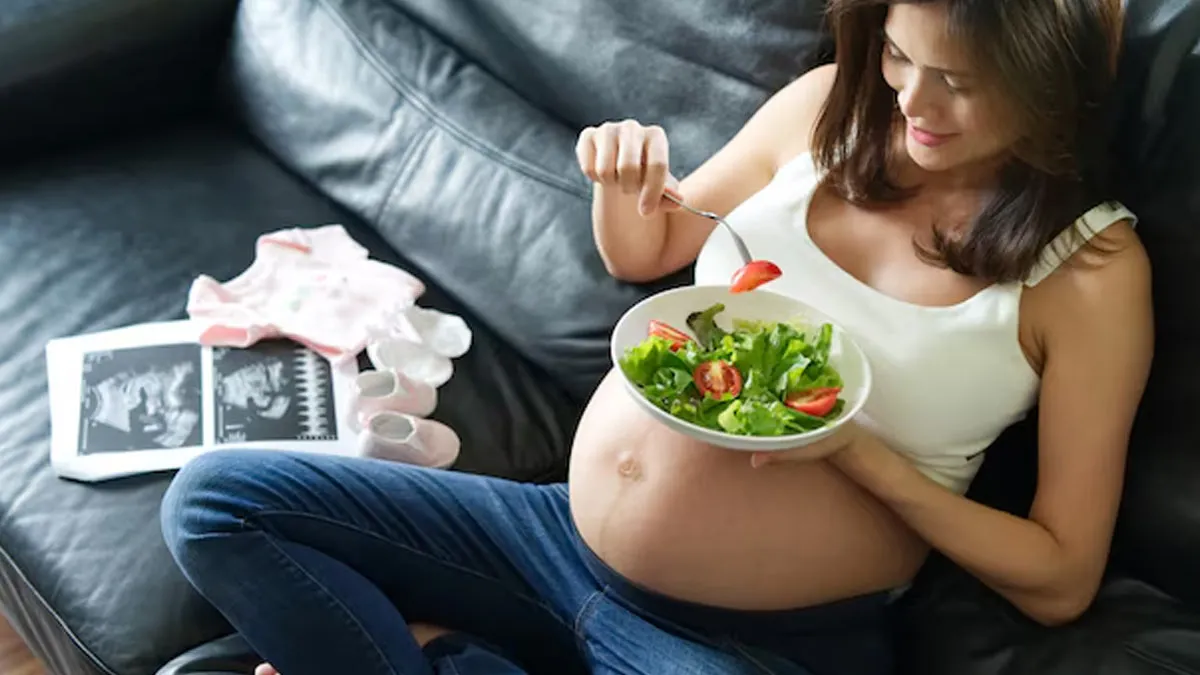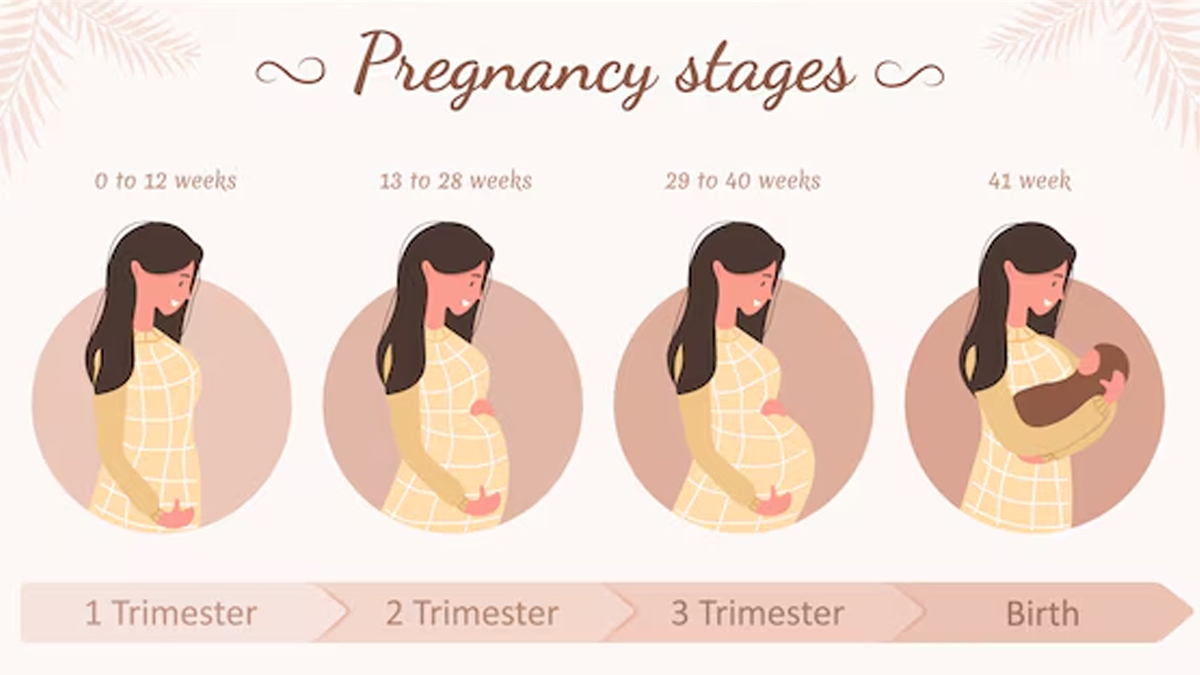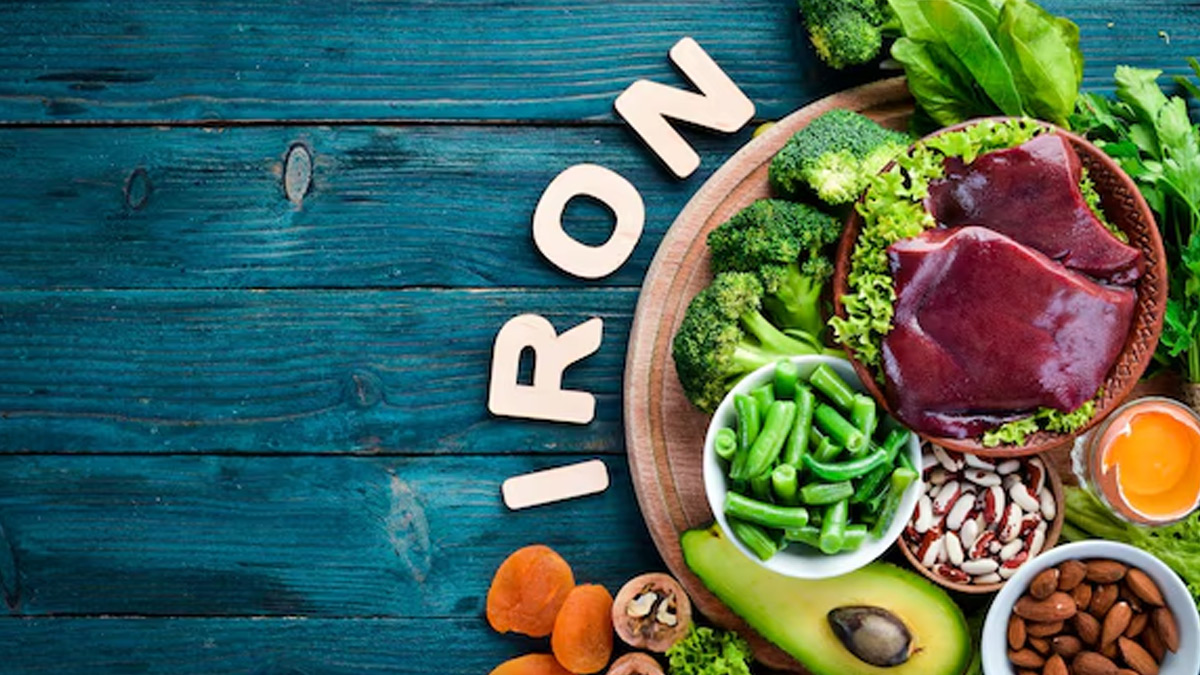
Welcoming a new life is an incredible journey, and what you eat during pregnancy is one of the most important ways to nurture yourself and your developing baby. A balanced diet supports the growth and development of the baby, helps prevent complications, and ensures that the mother’s body is well-equipped to handle the changes of pregnancy.
Table of Content:-
This Mother's Day, we spoke to Ramya B, Nutritionist, Cloudnine Group of Hospitals, Chennai, who shared optimal nutrition plans during pregnancy.
Trimesters During Pregnancy
This pregnancy period is divided into three stages, or trimesters, each with its focus on you and your growing baby.

First Trimester: 1 to 12 weeks
"The early pregnancy period is when organ development begins and continues to grow. This period is crucial because certain nutrients play a major role in organ development. In the initial first trimester, pregnancy symptoms like vomiting, nausea, dizziness, and food aversion are observed. A curated diet plan is required to manage the symptoms," said Ramya.
Second Trimester: 13-27 weeks
The baby's growth and development are rapid in the second trimester. Facial features develop and foetal movement starts. Important organ systems, such as the lungs and nervous system, continue to mature during the second trimester.
Third Trimester: 28- 40 weeks
“During the third trimester, the baby's weight increases, the lungs mature and adapt, and further development occurs until the baby reaches full term. Throughout the pregnancy journey, various nutritional interventions are necessary,” added Ramya.
Also Read: How to Care For Your Baby Bump?: Expert Responds To Common Queries During Pregnancy
Hydration During Pregnancy

- Hydration is essential in pregnancy. Fluid intake can vary between 2.5 -3 litres per day.
- If water consumption causes an adverse after-taste, having flavoured water, jeera water, lemon water, or dried ginger water can be encouraged.
- To subside other symptoms foods high in flavour, spice, and tempering to be modified.
- To improve healthy eating and prevent pregnancy symptoms, small meals placed every 2- 2 ½ hours help meet the desired nutrition.
Important Nutrients To Consume For Each Trimester
Folic Acid
- Folic acid is an important nutrient that plays a vital role in early pregnancy.
- Neural tube development happens in the first trimester. The neural tube is developed to form the brain and spinal cord in the later period.
- Poor intake of folate-rich foods or folic acid supplements increases the risk of spina bifida or anencephaly.
- Folic acid acts as a precursor in DNA formation. Folic acid deficiency might lead to irreversible DNA damage.
- According to the American College of Obstetricians and Gynecologists, the requirement of folic acid during pregnancy is 600µg/day.
- Some rich sources of folate foods include lentils, such as soya bean, rajma, green gram, horse gram, black gram, and cowpeas and green leafy vegetables like fenugreek leaves, gongura leaves, and spinach.
- As lentils and green leafy vegetables are great sources of folate, they should be included in the daily diet during pregnancy.
Iodine
- Iodine intake is vital during the first and second trimesters as it is involved in foetal brain maturation.
- Poor iodine intake can impair the cognitive function of the growing child. Iodine is involved in thyroid hormone regularisation.
- The inclusion of iodised salt, dairy products, seafood, and eggs helps in meeting the iodine requirement.
- Other important nutrients include protein, iron, and calcium.
Protein
- Protein intake and meeting daily requirements are crucial, playing a major role in foetal development.
- Low protein intake can increase the risk of foetal growth restriction, which is small for gestational age and other health issues.
- It is recommended to take 20-25% of energy as a protein from the total calories.
- The need for protein intake increases from the second trimester, with an additional 10g of protein recommended in the second trimester and 22g extra in the third trimester.
- Including high biological value proteins like eggs, meat, seafood, and poultry is essential to meet all essential amino acid requirements.
- For vegetarians, soy foods, such as soya chunks, tofu, tempeh, and soy milk are good sources of complete protein.
- A balanced inclusion of protein in all three meals can improve protein intake efficiency throughout the day.
Also Read: Foods To Eat And Avoid During Each Trimester Of Pregnancy
Iron

- According to the RDA, the daily iron requirement is 27mg daily.
- Iron demand is particularly high during pregnancy due to increased blood volume, a compensatory mechanism to enhance blood flow to the growing baby.
- As blood volume expands, haemoglobin levels may decrease, a condition known as hemodilution. Consuming sufficient iron-rich foods can help maintain healthy iron levels.
- Severe anaemia can lead to early labour and low birth weight.
- There are two types of dietary iron: heme iron and non-heme iron.
Heme iron
- Heme iron is present in non–veg sources, such as goat’s spleen, liver, and red meat.
- Organ meat is a great source of heme iron. It is easily absorbed in the body and helps maintain iron stores throughout the pregnancy.
Non-Heme iron
Non-heme iron is obtained from plant sources- green leafy vegetables, soybean, horse gram, fortified poha, pearl millet, ragi, green peas, black gram, and other fortified cereal.
Vitamin C
Vitamin C present in guava, amla, kiwi, strawberries, and other citrus fruits helps in improving the absorption of non-heme iron. Non-heme is less absorbable, if paired along with vitamin C-rich food the absorption rate is comparatively better.
Calcium
- Calcium is an important trace element which is involved in a baby’s bone and teeth development. Adequate calcium-based foods should be included in a regular diet.
- If maternal intake of calcium is not sufficient it might cause resorption of calcium from the mother causing a risk of osteoporosis in the mother.
- According to the American Journal of Obsetrics & Gynecology (AJOG), the daily calcium intake should be 1000mg.
- Calcium-rich foods include- green leafy vegetables, ragi, horse gram, lentils, milk, and milk products.
- Sardines, tofu, and fortified juices are also good sources of calcium.
Balanced Meal
- Balanced meal intake is the most essential part of the pregnancy diet.
- Meals should be spaced at appropriate intervals, incorporating all major food groups, such as cereals, pulses, vegetables, fruits, meat, and dairy products.
- Aim for two servings of fruit and 1-2 servings of vegetables per meal.
- Complex carbohydrates (whole grains, millet) should be included in the diet.
- By following a balanced meal pattern and consuming nutrient-rich foods, you can significantly enhance your pregnancy experience, leading to the best possible outcome.
[Disclaimer: This article contains information provided by an expert and is for informational purposes only. Hence, we advise you to consult your professional if you are dealing with any health issue to avoid complications.]
How we keep this article up to date:
We work with experts and keep a close eye on the latest in health and wellness. Whenever there is a new research or helpful information, we update our articles with accurate and useful advice.
Current Version
